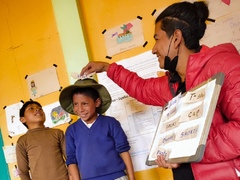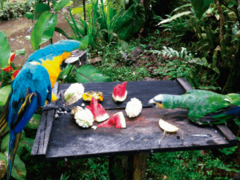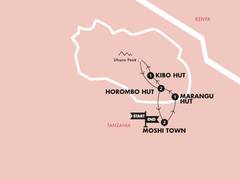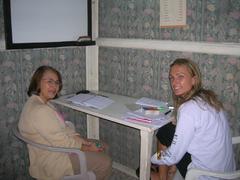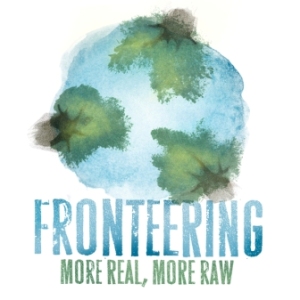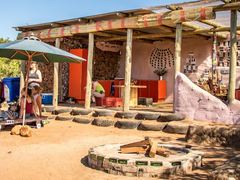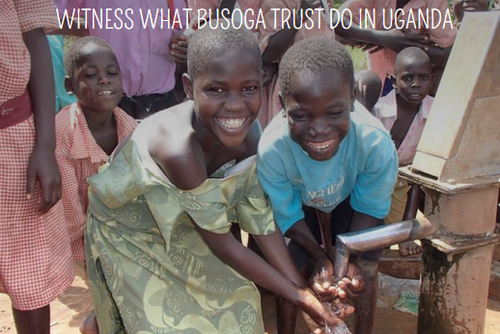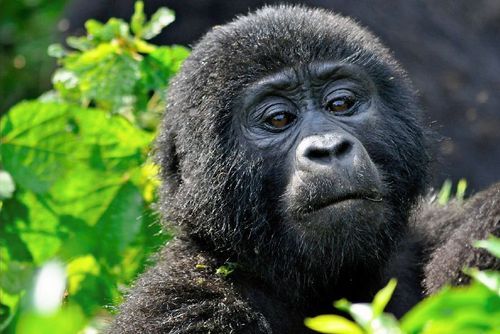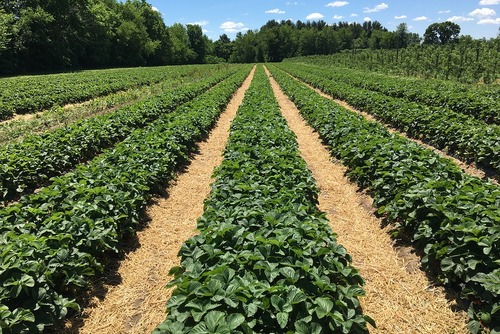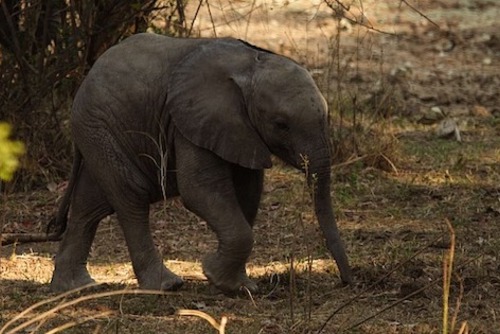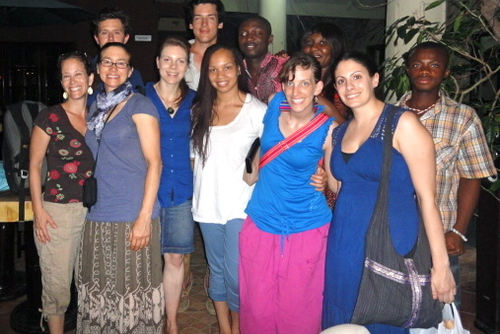EACO particularly welcomes skilled professionals who can help us improve and develop our own capabilities. EACO welcomes enthusiasm and commitment in all volunteers and is committed to ensuring all voluntary experiences are as mutually beneficial as possible. We assure you will return home with memories of a very rewarding experience, just as our friend Rachael Neel did and She I’d be more than happy to answer any questions and help out your path towards staying in Uganda. Rachael.neel21@gmail.com, for more details about her work experience at EACO is here: http://eacouganda.webs.com/apps/blog/entries/show/44142344-rachael-neel-eaco-experience
EACO's key principles on and approach to community development
- The vision and philosophy of EACO is based on the belief that every human being is a unique individual and that we all have a right to good health and basic needs and should access means to a comfortable life in one way or another.
- We believe that the first priority is that people should have a sustainable life. However, almost equally important is that an individual’s life should have meaning and that they should develop independence. This is being achieved through care then empowerment and support. But we need to get infrastructure to give our communities clean water and latrines to stop the spread of disease. It’s really only then we can bring education so that our people understand the overwhelming benefit to them. With improved health comes the ability to be employable to generate income and escape from poverty.
We need Volunteers/Students/Well-wishers/Donors for Partnership into these projects
Partnership in Food Security and Nutrition
The Partnership here would look at providing an all round education, the schools maintains a small but highly capable agricultural science department. This will ensure that the girls are able to learn environmentally sensitive and economically productive and sustainable techniques of farming essential to creating new jobs and improving food security for the wider benefit of society. These schools rightly want to extend their ability to make such an education available to a wider number of students and is enthusiastic about finding innovative new ways of doing this.
Partnership in Environment Conservation
There shall be a tripartite partnership agreement involving Conservation Agreement Private Partnership Platform, EACO and the Schools communities. The contribution of each partner will be as follows:
For Conservation Agreement Private Partnership Platform:
- Funding ;
- Publicity & awareness creation
- Use Global Giving’s wide branch network as focal points for facilitating regular interactions
For EACO UGANDA:
- Project design, planning & management
- Supply of high quality, fast growing fruit tree seedlings
- Technical support and oversight on tree planting and management
- Training of selected schools
- Monitor and evaluate
- Produce report and accountability to Global Giving
For Schools Communities
A major advantage of working with schools in terms of tree planting is that they are permanent institutions with adequate land, labor (especially children), and management capacity from head teachers and teachers.
- Planting and maintaining of the trees
- Publicity and awareness creation
- Give reports to EACO
Planned Activities into this project:
- Fruit & Shades Tree planting - This shall involve teachers, parents and the pupils. Fruit Tree species will range from Mangoes, Avocadoes, and Jackfruits, Pawpaw, Passion fruits, Oranges and Guavas. These will be sourced from various breeders and distributed to schools.
- Children shall be taught how to raise trees and fruits and they shall be expected to do this at their respective homes, teach their parents and as a result there will be a multiplier effect.
- Demonstrations on Nursery Tree Establishments - children will be taught how to raise tree nurseries, care for trees and also simple techniques of breeding such as grafting plants for better quality breeds.
- Environment Awareness – This will help pupils learn about nutritional values from fruits, the value of planting trees and how to care for them in a sustainable manner. The need for environmental conservation shall be emphasized.
- Monitoring and Evaluation – Success of this project partly relies on efficient monitoring. Fruit trees planted shall be monitored by EACO UGANDA to ensure that they are growing well and are managed as earlier agreed up on.
Partnership in Water, Hygiene and Sanitation
Partnership would be in WASH Project into our Communities of Mukono involving schools and our reasons for interest in partnering with you into this Project, we want our communities to receive trainings on all aspects of the project including hygiene promotion, construction of latrines, repairing boreholes, WASH, besides that they will learn The links between water, sanitation and health, The nature of, and the threats posed by, environmental diseases, The importance and main elements of hygiene-promotion and The complexity in delivering safe water and sanitation in an emergency.
EACO wants to make clean water accessible within 1 kilometer for 100% of the people in rural Mukono. By constructing and Repairing fresh water wells throughout rural areas of Mukono, EACO will bring relief to thousands of residents, including those in surrounding communities.
Now you could also send in volunteers to do the trainings well as fundraising for the collapsed boreholes that need repair and in total they are 69 boreholes which need repair and construction, we want to construct latrines for the schools
Introducing new clean water wells in Mukono, will significantly improve the health and wellbeing of residents. The clean water initiative will directly impact the following four areas:
Poverty:
- Shorten distance to nearest clean water source by up to 9 kilo meters
- Free ~15 additional hours per week for those who hold the burden of fetching water
- Education: Foster higher education and increase literacy by giving more children the time to attend school and study
- Health: Reduce cases of water-borne diseases including typhoid fever, bilharzia, malaria and diarrhea
- Safety: Prevent incidents of abuse and torture including rape, kidnapping, child sacrifice and mutilation
- Latrine construction and training
- The goal of this project is to provide ecological latrines to rural schools in our communities in 100 schools. In our schools this approach will provide separate latrines for boys and girls.
- The Need: People in rural areas in Mukono districts, lack access to proper sanitation.
There is limited awareness and education of proper sanitation and hygiene techniques in rural Uganda. Most households in rural areas defecate in the open or have access to latrines that pollute the soil and attract flies spreading avoidable diseases.
Children too are being affected with the lack of water and sanitation. It is affecting their schooling the most. Girls have to share toilet facilities with boys. Many of them have end up dropping out of school. Discrimination against women due to gender ends up violating their rights and undermining their health and well-being, along with crippling the development of individual woman’s status.
Communities in Rural Mukono, do not have latrines and toilets they are able to use themselves. Not only households but also schools we work with. This forces them to dig 1 foot holes to use as toilets, yet they have children in those homes. Most of these holes are dug up in the gardens where they grow their food which is risky. Some dig beside their houses.
The most pertinent fear we have is the damage this causes when it rains, for health and sanitation reasons. We have seen that this is the main cause of diarrhea. Flies are then attracted and are in contact with their food. Furthermore, these people do not have a habit of washing their hands after using the washrooms, most of them will go directly to eat after which unfortunately puts them further at risk. A lot of these individuals end up getting jiggers and ring worms in their feet and legs. This also affects the animals they keep in their homes which often need to be taken care of and seen by someone to remove all the worms.
All these residents are struggling financially. They do not have the money to solve the problem let alone seek treatment for it either.
Partnership Platform in vocational and life skills training
Partnership into this project would be in empowering rural vulnerable people with knowledge and skills in project for beekeeping as a way of addressing rural poverty and general health issues and to provide them with a set of basic tools and support to help them get off the poverty trap and at the same time to protect the environmental.
Beekeeping has a great environmental impact as well as income generating potential. The cross-fertilization effect promotes crop yielding and creates an ecological environment. Traditional bee hunters burn the tree nests of the bees, but modern beekeeping prevents bush burning and destruction of the bees. Beekeepers are more aware of keeping the environment green, since they benefit from the diversity of plants and preservation.
Furthermore beekeeping products generate income, with a high profit rate. At the same time it is not very time consuming. Since the women are already very busy with farming, taking care of the children, household and other duties, this is very relevant.
And at last bee products (honey, bee wax and pollen) are very healthy. Honey is a good replacement of sugar and when you have a cold it has a healing effect. for those with HIV/AIDS is a treatment.
Project Description
The project outlined is based in rural Schools. School own analysis of their requirements and has the full support of the school’s director - ensuring the local ownership required for its successful implementation.
With expertise in agricultural and entrepreneur education EACO will provide the schools with technical, administrative and financial support to maximise the project’s impact.
The project will:
- Provide funds for the establishment of hives stocked with apis mellifera mellifera bees
- Provide thorough training for three teachers at each school in all aspects of bee-keeping from hive construction, maintenance & disease prevention, to harvesting, processing, and packaging of honey and other hive products.
- Assist the schools to access advisory services from local bee-keeping trainers
Outcomes
Our goal is that by the end of the project the Rural Schools of Mukono, bee-keeping activities should be generating income sufficient to cover the cost of a trained bee-keeping instructor and ongoing hive maintenance and replacement costs. Specifically:
- All students currently at those schools will have been trained to a standard where they are able to establish and maintain their own hives as a viable business activity.
- The hives will bring in additional income to the school which will be used to buy additional educational resources (books & equipment etc..), and to fund scholarships for the most needy pupils most especially Girls.
- Rural Schools of Mukono will be in a position to replicate the developed project at other schools in other communities in Uganda without the need for substantial fresh resources.
Partnership in Community Health and HIV/AIDS Prevention
It is unfortunate that the government of Uganda does not appreciate sex education and little it is doing to streamline it in the education curriculum. Sexual health is a central determinant of a person’s quality of life. It is important for people to understand sexual health issues and this is paramount to helping people make informed, responsible and healthy decisions. EACO wants to promote knowledge of sexual and reproductive health services to vulnerable and marginalized groups including young people, in order to help prevent unwanted pregnancies and the spread of HIV and other STIs as well as empower youth to make informed decisions about family planning.
The organization also wants to carry out sensitization in communities and schools through formation of clubs to provide information on sexual and reproductive health issues, family planning, control of STIs, information on safe abortions and post abortion care, condom distribution to youth among others. The organization will be using a peer educators’ network to make referrals for youth to service centers for further SRH information and services, care, counseling and treatment.
The need to build educational capacity and create new livelihoods is critical for the peaceful development of any developing country such as Uganda. I hope that our approach inspires your trust to share that vision, and to invest in the future of the young people of Uganda with a donation toward this project.
The challenge at this stage is to seize the opportunity, to take the risk, to realize a rewarding and productive future. With the strength which has made EACO, the choice is an easy one -- help our community meet the challenges critical to save lives, promote sustainable development, and achieve humanitarian goals.


